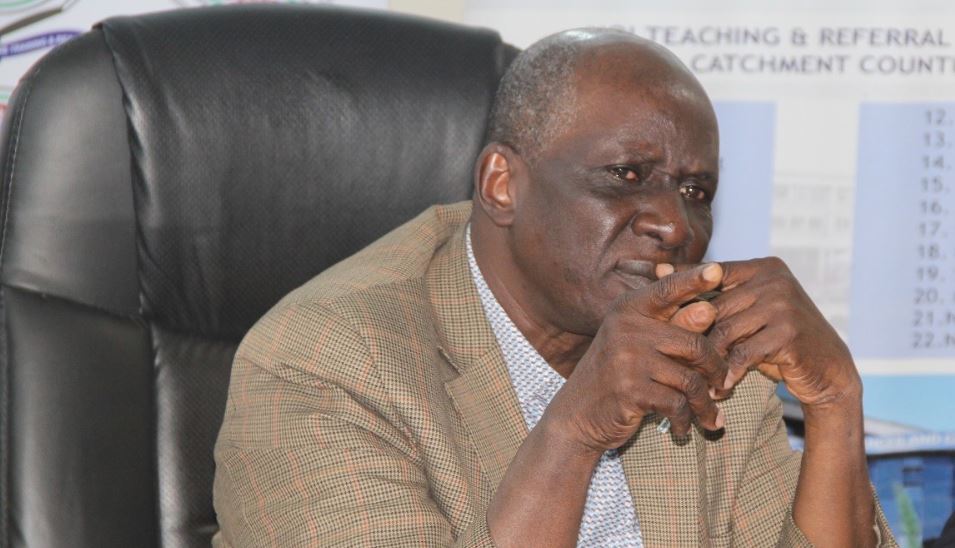

The parliamentary probe into alleged malpractice in kidney
transplant services at Mediheal Group of Hospitals took a new turn on Thursday,
with lawmakers questioning St. Luke’s Orthopedic and Trauma Hospital and Oak
Tree Hospital over their role in transplant procedures.
Appearing before the Departmental Committee on Health in Eldoret, administrators from the two facilities confirmed that they had performed kidney transplants on foreign nationals, mainly Somali patients, who were registered and paid through the now-defunct National Health Insurance Fund (NHIF).
The MPs led by Chairman of the committee Dr James Nyikal
toured the Moi Referral Hospital (MTRH), St Luke’s hospital and the Oak Tree
Hospital.
Dr Nyikal said they had a programme to follow up on several issues including the one on organ harvesting, especialy following concerns on kidney transplant at hospitals in the region.
He said the commiitee that had converted into an inquiry
team was acting on a petition filed by one of the MPs concerning organ
harvesting and transplant.
“What we have so far found is thaf there is ongoing normal
kidney transplant but there may be some that are not normal,” said Dr Nyikal.
Dr Nyikal said the team would interrogate some of the
victims who claim to have been kidney donors.
“This is work in progress and we are still getting
information. We will talk of many people including police officers who have
been involved in this matter. Later we will also meet the MP who came up with
the petition,” said Dr Nyikal.
Endebess MP Dr. Robert Pukose, a committee member, asked St.
Luke’s Orthopedic and Trauma Hospital to clarify whether foreign nationals had
received transplants at the facility.
“Among the patients you’ve done kidney transplants, do we
have foreigners?” he asked.
“Yes. Five patients were from Somalia,” responded Dr. Silvia
Nikita, a medical officer at St. Luke’s.
When asked about the identification of donors, the hospital
explained that Oak Tree Medical Centre was responsible for donor–recipient
pairing.
“The role of identification and pairing of potential donors
and recipients lies with Oak Tree Centre for Kidney and Chronic Diseases, with
whom we have a memorandum of understanding (MOU). Most of the cases involved
blood relatives,” Dr. Nikita said.
Lawmakers, however, expressed concern about whether
hospitals could fully verify the authenticity of donor–recipient relationships.
“We are aware there has been a lot of discussion about
kidney selling,” said Seme MP Dr. James Nyikal. “We want assurance that what
you are doing here follows national guidelines.”
According to documents presented, St. Luke’s had conducted 34 kidney transplants. Hospital officials also acknowledged that some complications had been reported.
“There were one or two cases of rejection after surgery, some bleeding that required patients to return to theatre, and one donor who developed acute kidney injury but recovered after treatment,” said Mr. Gabriel Joseph from St. Luke’s.
“We have also received information from Oak Tree about a few
patients who passed away after surgery,” he added.
Lawmakers also questioned why St. Luke’s outsourced critical
laboratory services to Oak Tree Centre despite having its own laboratory.
“I don’t understand why samples for cross-matching are taken
to India or South Africa when facilities like Metropolis are available
locally,” said Ndhiwa MP Martin Owino.
Concerns were further raised about where consent procedures
were conducted.
“Are patients and donors giving consent here at St. Luke’s,
or at Oak Tree? And what is the difference between the two consent processes?”
asked Kisumu Central MP Dr. Joshua Oron.
Hospital representatives explained that most pre-operative tests, consent signing, and nephrology consultations were carried out at Oak Tree, as St. Luke’s does not have a resident nephrologist or dialysis clinic.
Director of St Luke’s Hospital Mary Lelei and her counterpart
for Oak Tree hospital Mathew Koech both said they had ensured that handled all
patients adhering to all necessary ethical practices.
“If there was anything else done outside the hospital we wouldn’t
know but for our patients we always ensure all ethical and professional medical
practices are followed,” said Lelei.
Lelei said the NHIF Act allowed foreigners with temporary residency to access cover.
“It’s not just Somalis—there was also provision for Chinese
nationals working on road projects. The Somalis we treated were paid-up members
of NHIF,” she explained.
While acknowledging some gaps in follow-up and coordination,
hospital officials maintained that all procedures were conducted in line with
Kenyan law and medical ethics.
They cited the Health Act 2017, the Human Tissues Act, the
Data Protection Act, and principles of autonomy, justice, and consent as
guiding frameworks.
Committee members, however, insisted on full disclosure.
“We don’t come here thinking you are doing something wrong,”
said Nyeri Town MP Hon. Dancun Mathenge. “But when you withhold information,
you raise unnecessary suspicion. Give us accurate records of all transplants,
the donors, their nationality, and how consent was obtained.”
The probe continues Friday, with the committee scheduled to
hear testimonies from recipients and donors, as well as from the proprietor and
chairman of Mediheal Group of Hospitals.











